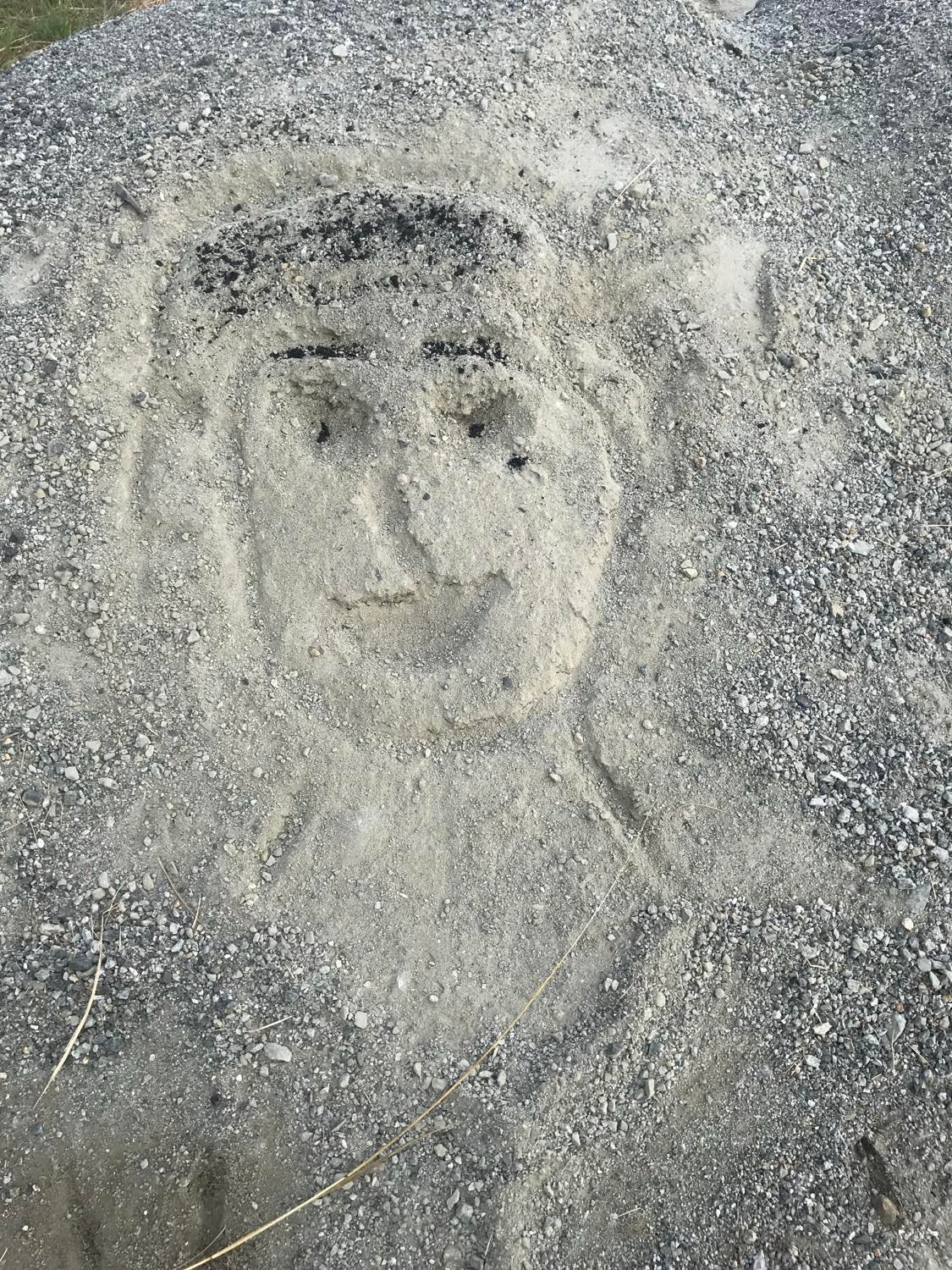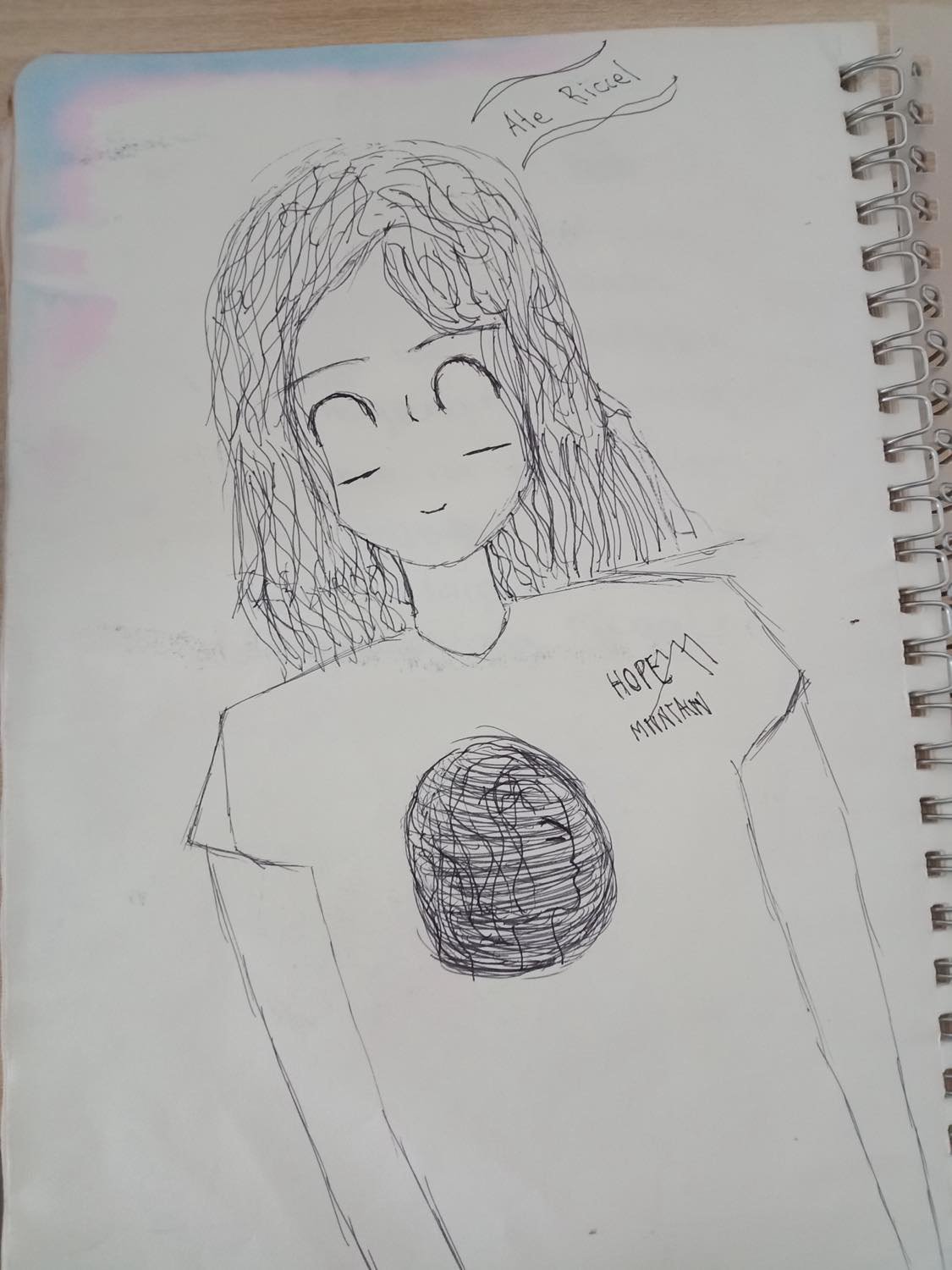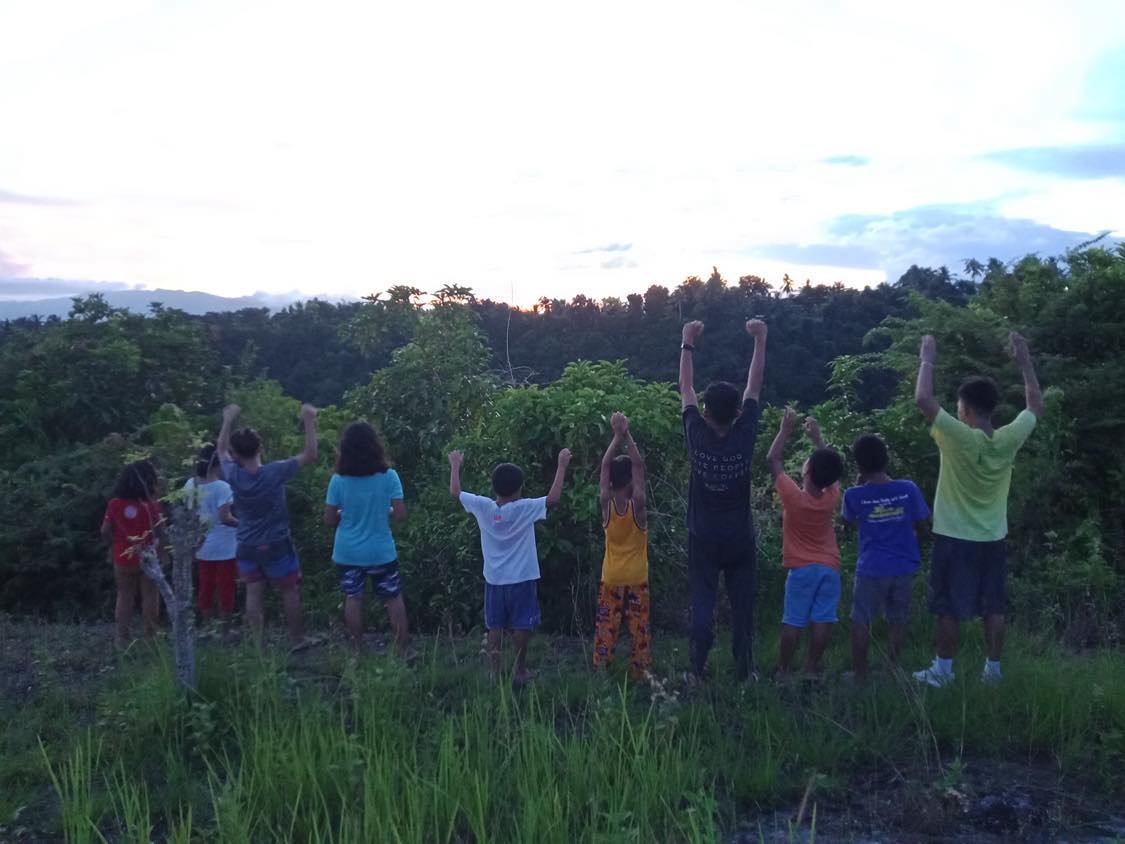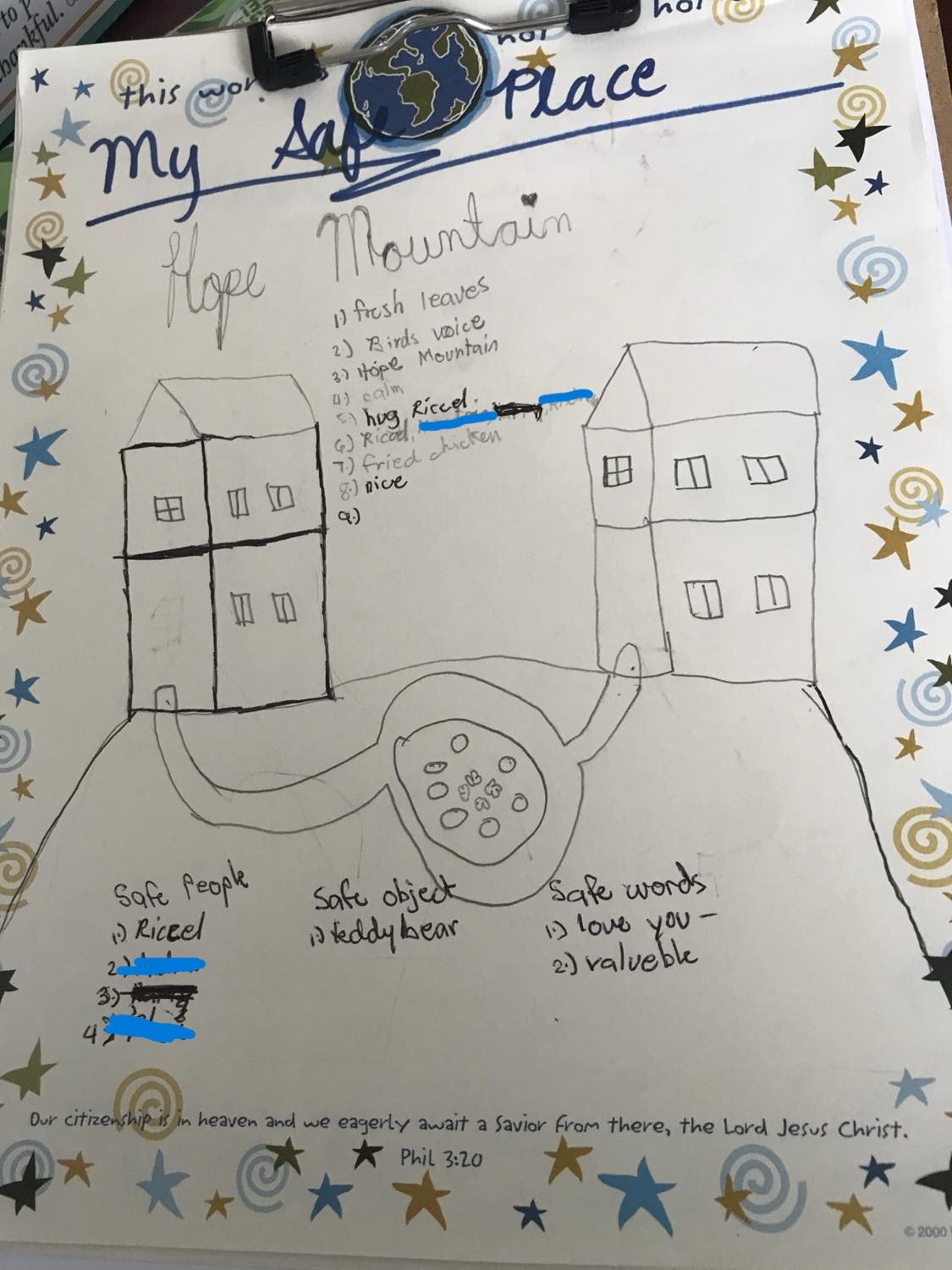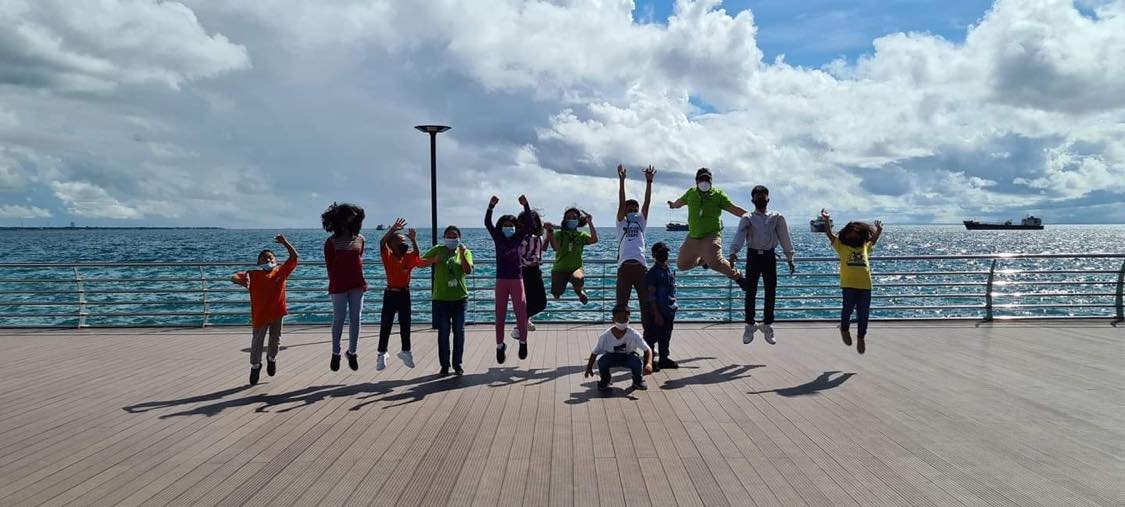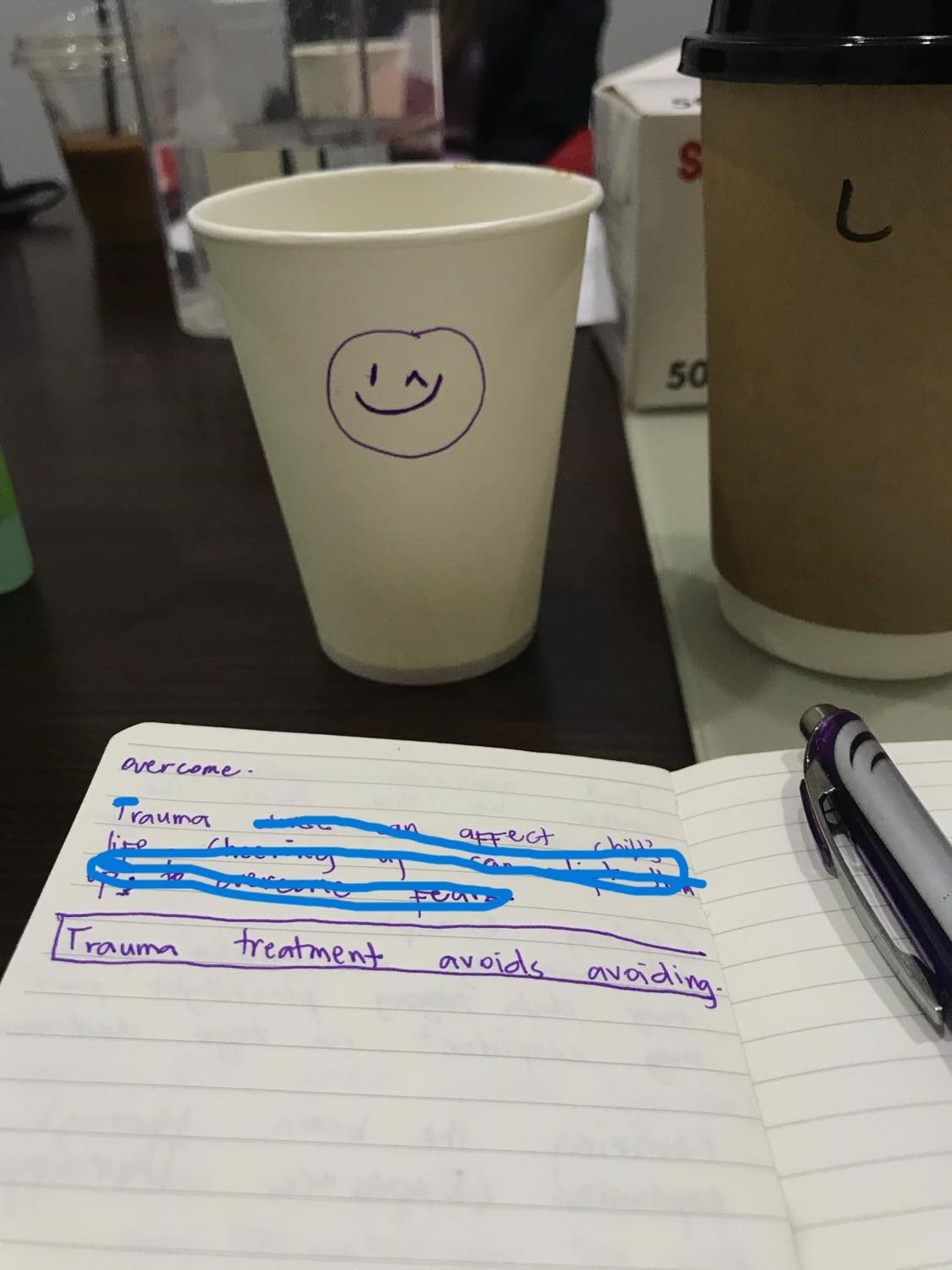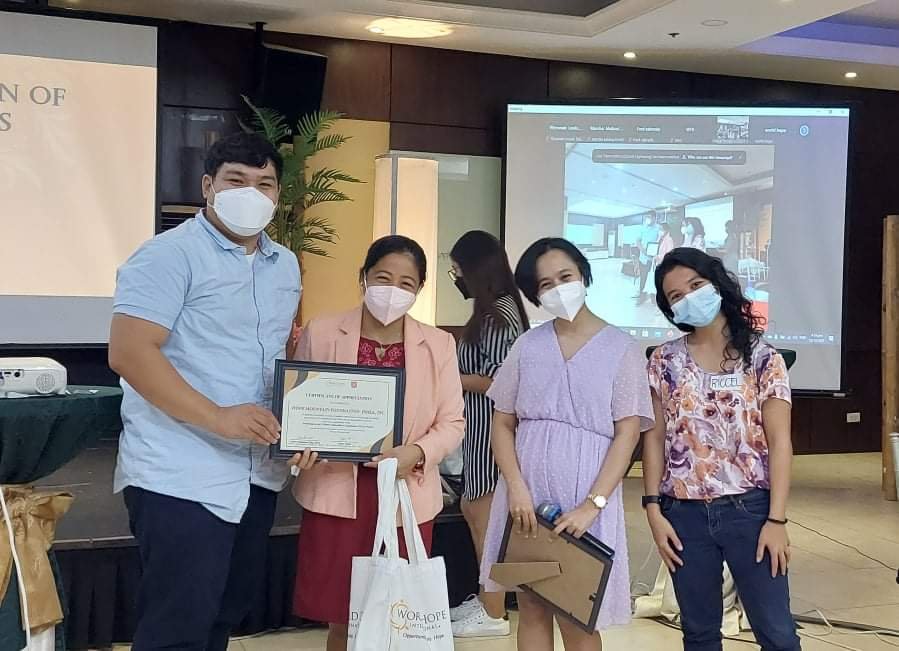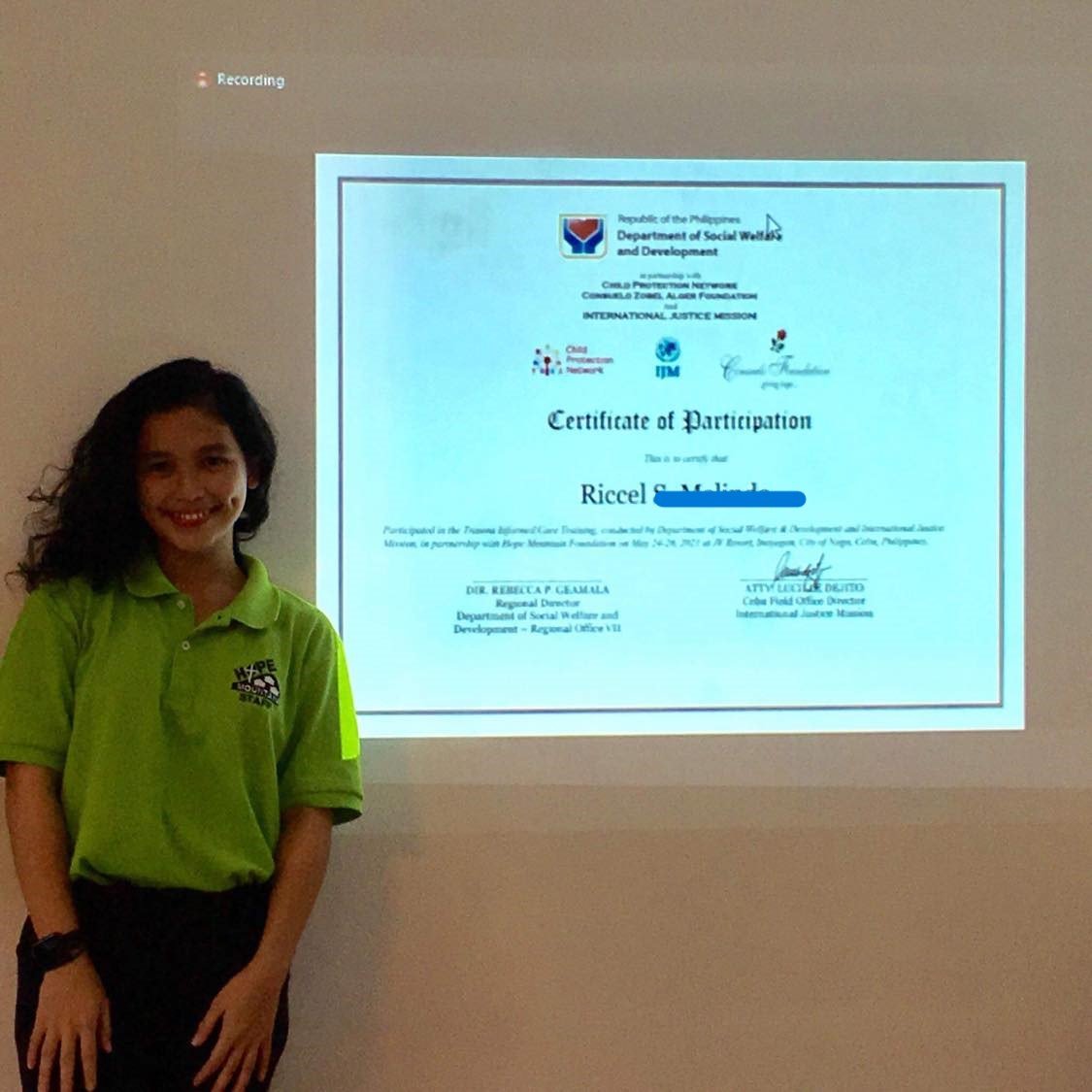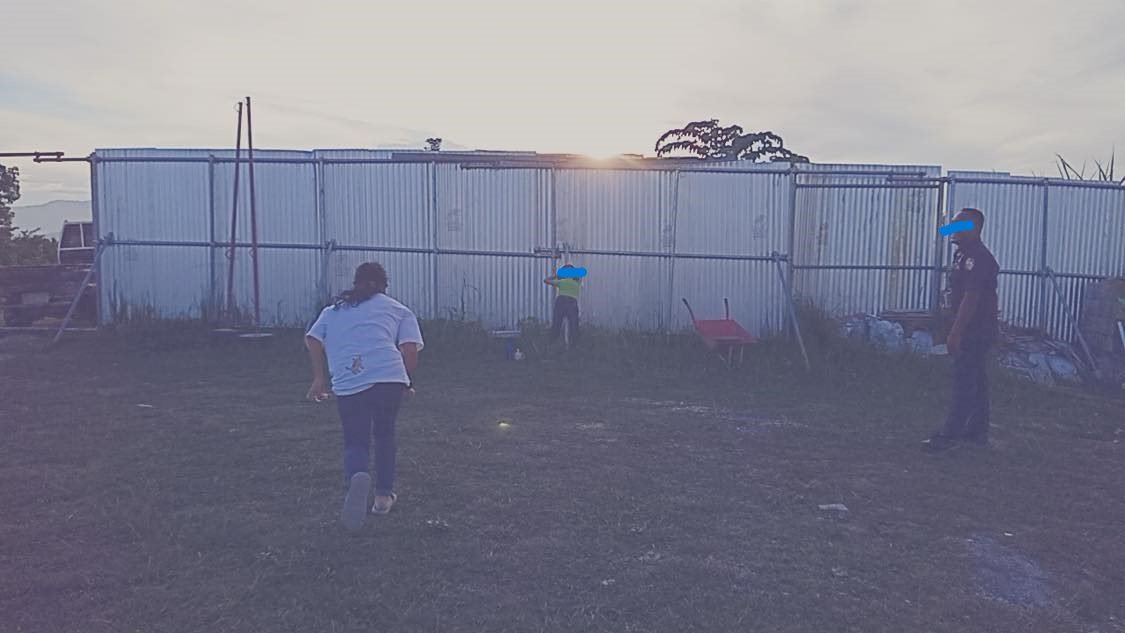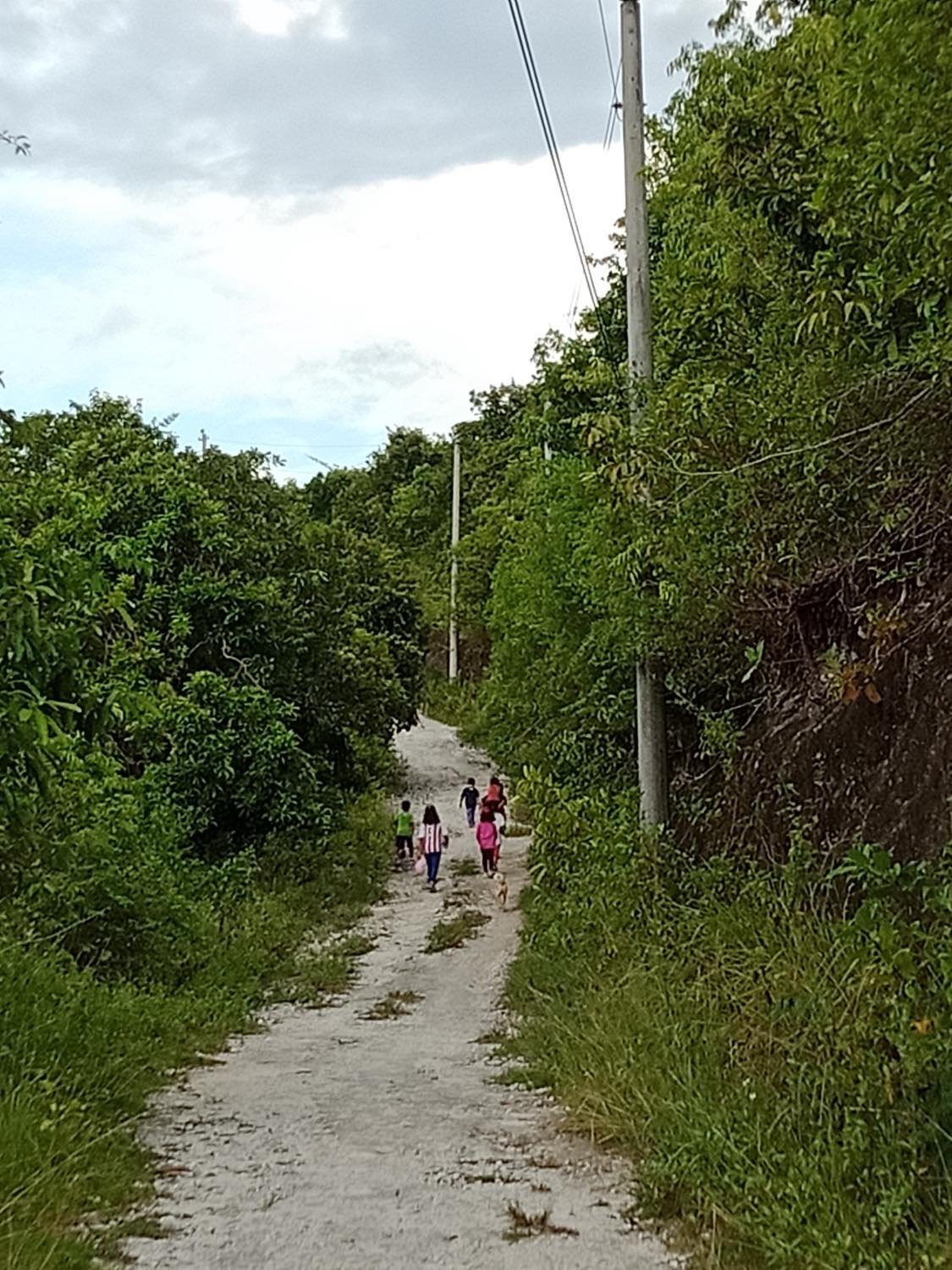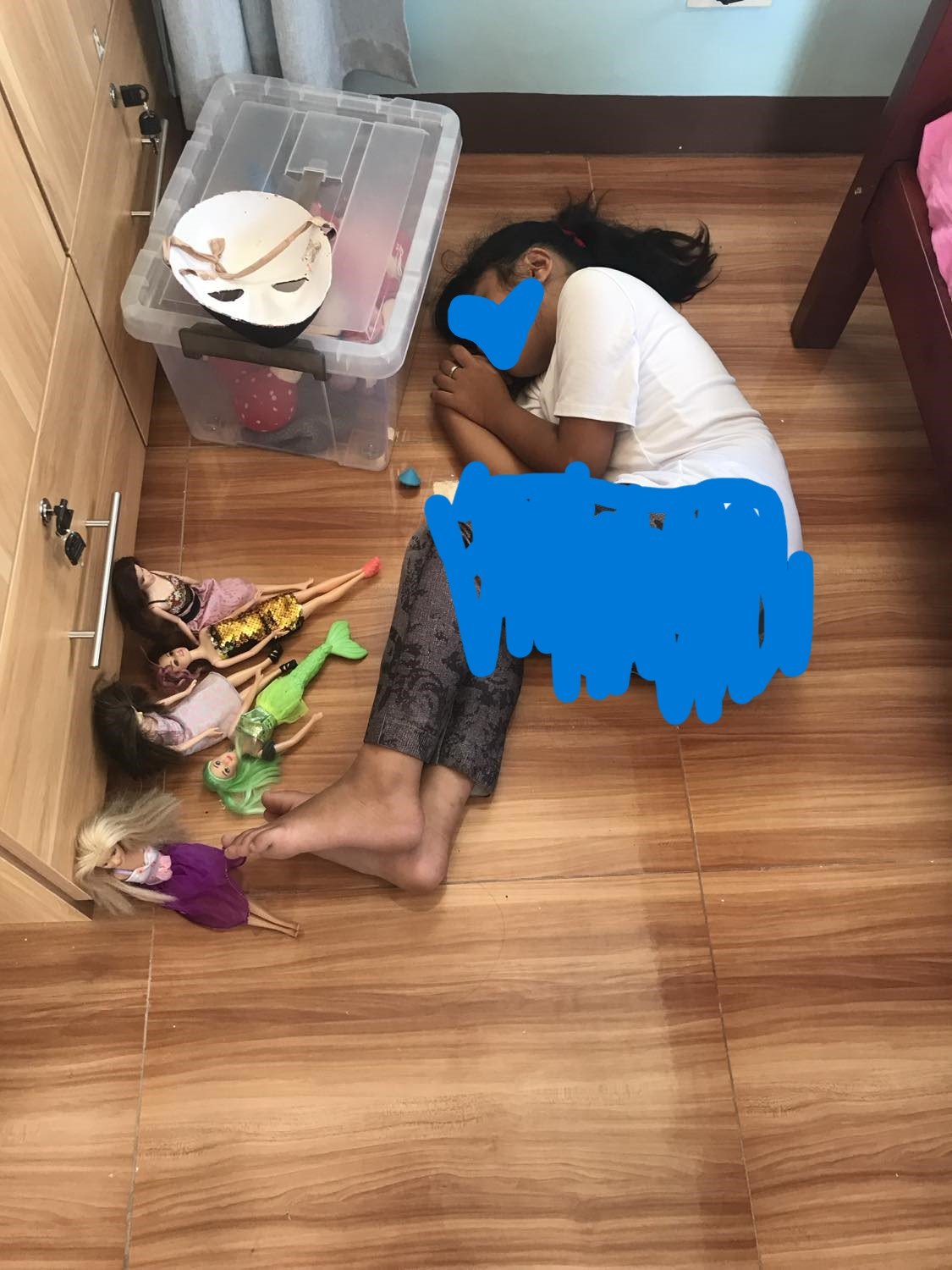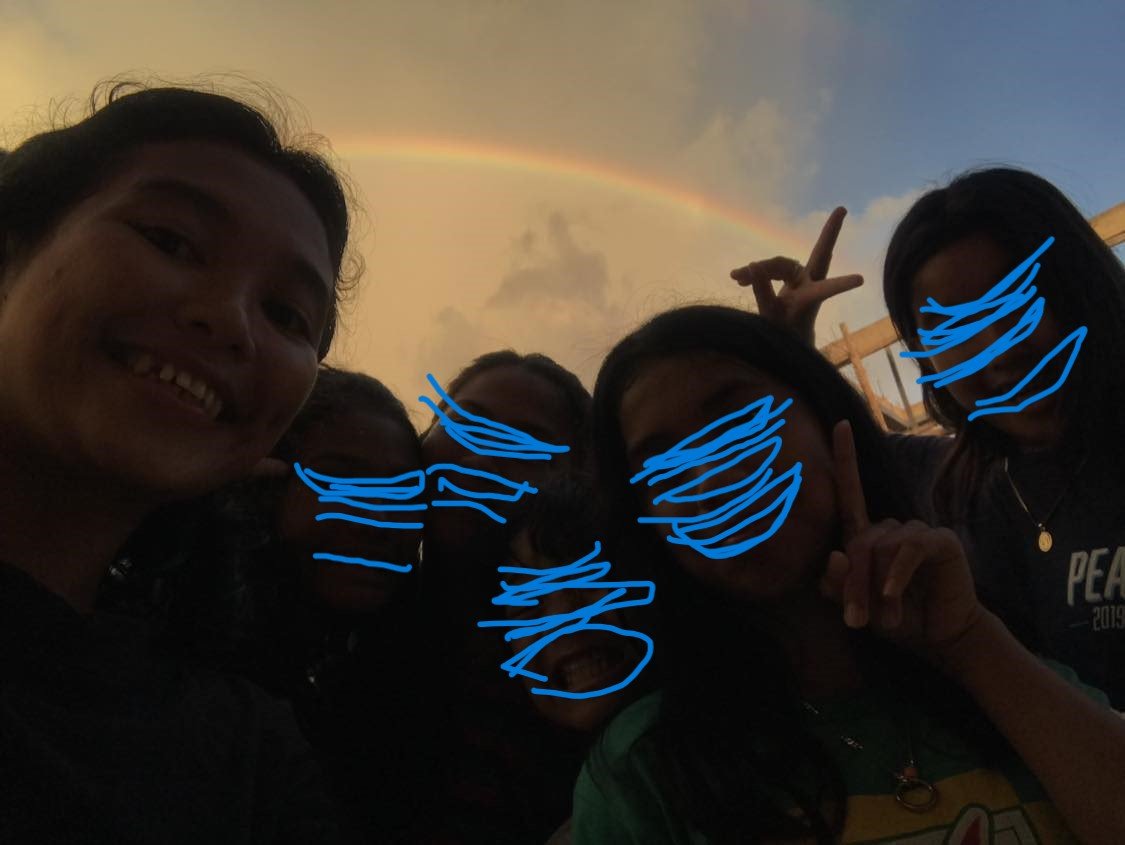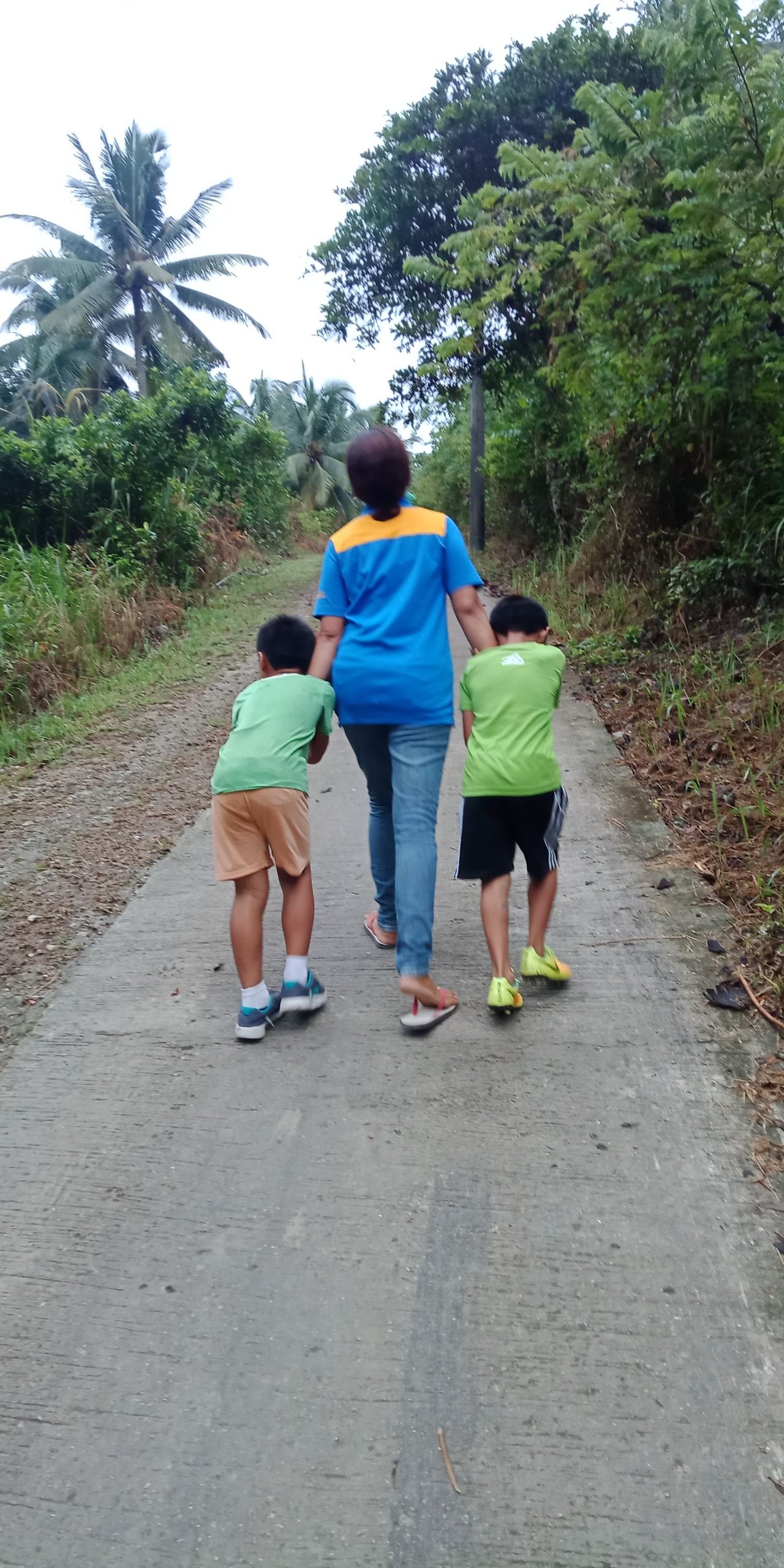"This is me, made by one of the boys in the children in the center"
An 'agent of change'—what does that mean? Well, for us social workers, being referred to as an 'agent of change' carries great commitment and responsibility. We are tasked with bringing about positive and meaningful transformations within society, whether at the individual, group, or community level.
"Made by a 15 year old youth in the center"
This is how I started my journey as a social worker, supporting victim-survivors of sexual abuse and exploitation.
I took a risk by accepting an assignment in an unfamiliar location, which happened to be in a mountainous area. There were many factors to consider, such as finding a place to live, but I didn’t hesitate to accept the job and flew to Hope Mountain Center, despite having only a little knowledge of the job description.
I stayed in the facility for two weeks where the children are living. During this time, I experienced their way of life firsthand. While the center follows a family-based style, the experience is still distinct from living with one's own family. When I started the job, there were 8 children in the center. Now, the number has grown to 20.
"This was an activity from one of the children in the center during our therapeutic session. ‘Identifying safe place’"
KEEPING THE CHILDREN SAFE AND PROTECTED
Hope Mountain serves as a safe haven for children who are not safe in their own homes. I can't imagine the struggles they endure being away from their families for their own safety. At Hope Mountain, the staff strive to care for these children by learning to love them, providing attention, and creating a sense of belonging that they may not have experienced in their own homes. They also work tirelessly to provide hope to these children, offering them support, guidance, and encouragement for a brighter future.
In the center, they were taught that having God in their lives brings hope. Its programs and services include education, medical support, life skills training, counseling, and spiritual formation.
During my first two weeks living with them, I struggled to sleep after reading their stories and reports in their respective folders. It was difficult to fully grasp the information, knowing that these children were helpless victims at the hands of their own family members. It truly broke my heart to realize that the situations depicted in movies were unfolding in real life. What saddened me the most was that it happened to them at such a young age, when they should be the beacons of hope in our society.
I attended numerous training sessions and seminars on trauma-informed care to better understand these children, enhance my effectiveness in handling them, and maintain my own well-being while working with them.
When I was equipped, I started conducting one-on-one therapeutic sessions with them. I played with them and interacted with them; those were my strategies for building rapport with my clients. As we became familiar with each other, the children slowly began to break down their walls and started opening about their traumatic experiences. During our sessions, I had to keep tissues handy because this is not a trial-and-error job, but a learning experience for both staff and children.
HUMILITY TO SERVE
I have to go to the bottom to understand these children and their experiences. One of the principles of social work is ‘controlled emotional involvement’, but boy, the theory hits different when I practice it. I now understand that theory does not state ‘always’, because to be honest I couldn’t control my emotions all the time. The theory grounds me as I’m dealing with the most vulnerable people in our society most of the time. As they open up and become vulnerable, tears often well up in my eyes. Have you ever tried to hold back tears, desperately trying to keep them from spilling over? That's my daily struggle as I work with these incredibly vulnerable individuals—pretending to look at the ceiling every time I feel like tears are coming out.
Traumas were imprinted on these children’s brains, and they will never be erased. They will carry this battle and the triggers they must face throughout their lifetimes.
Children are fragile, so we need to handle them with care and love
Slowly, I found my purpose in continuing to serve the vulnerable ones. I gradually understand now how my parents disciplined me while I was a child to grow up resilient, hopeful, and to be a voice for the voiceless. This takes a lot of courage and I'm really thankful to them for what I have become now.
This is how I perceive what it takes to become an agent of change. In order to empower these vulnerable individuals, I myself need to be empowered first. This poses a challenge for me since, growing up, I haven't been assertive or courageous enough to confront people. However, I'm gradually making progress along the way as an agent of change for them.
Stay tuned for the wonderful stories I’m about to share in my next blogs. These are stories that were once hopeless but are now striving to be hopeful.
